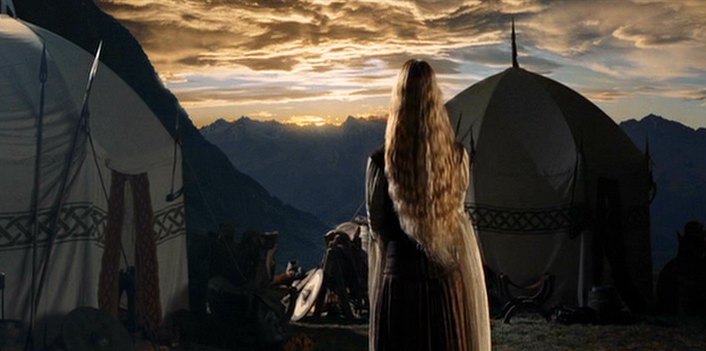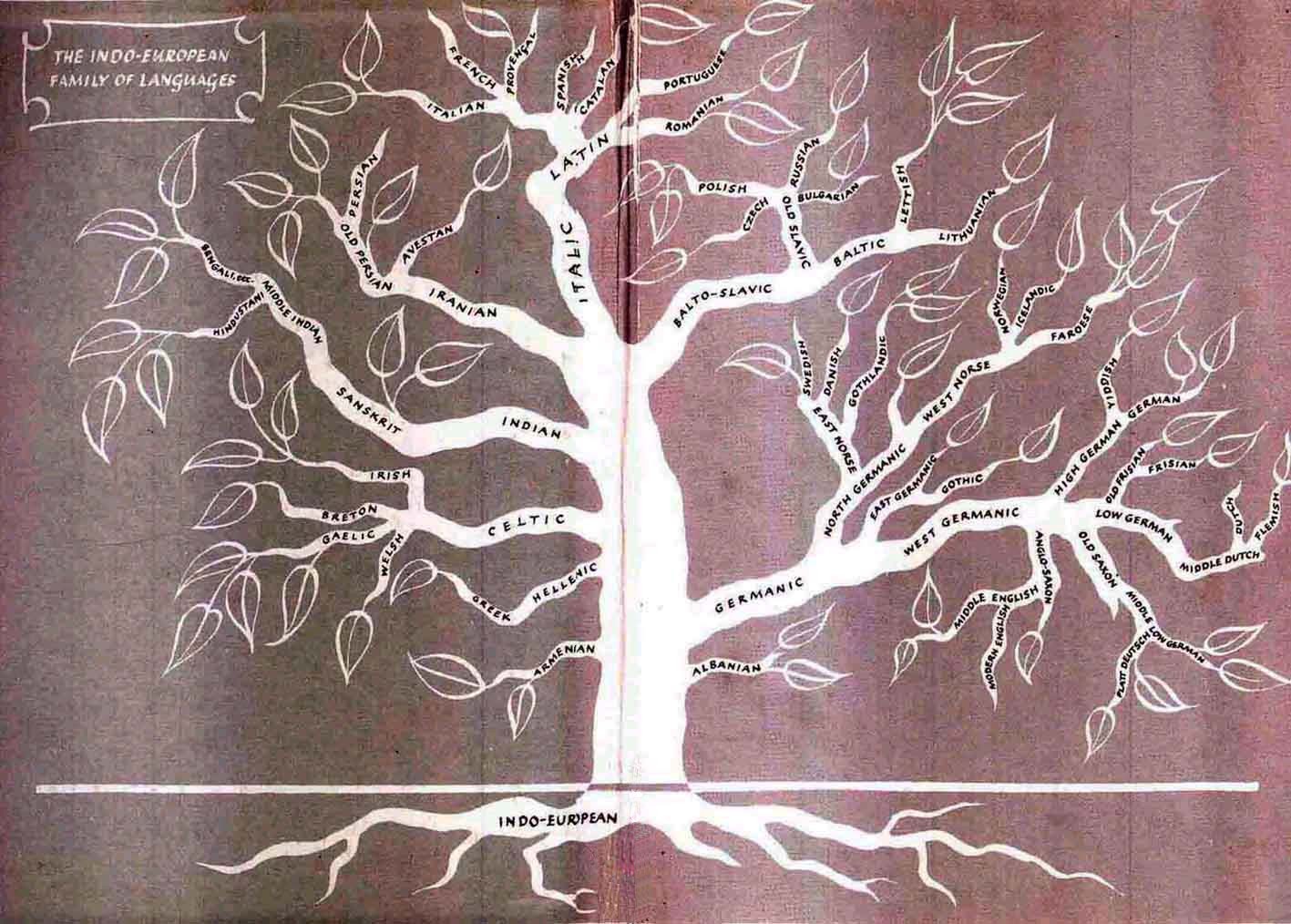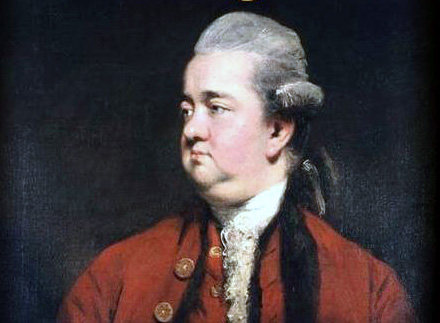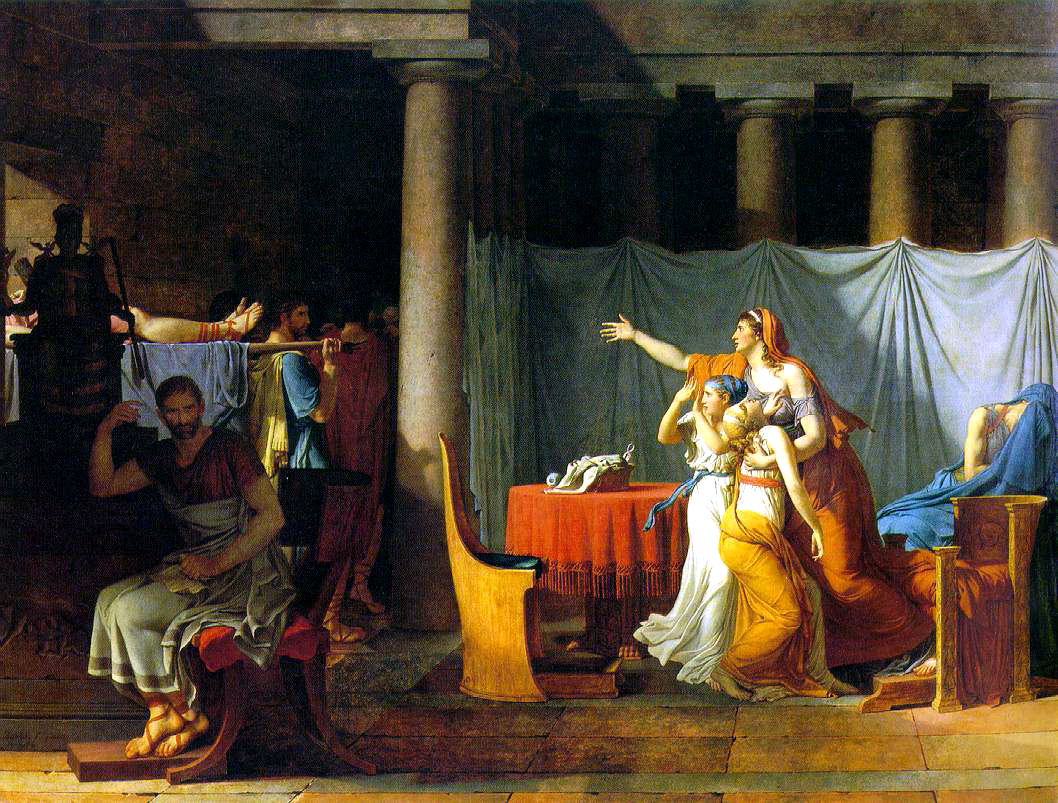The 2011 biography authored by R. H. S. Stolfi on Adolf Hitler mentions that Caesar perpetrated a genocide of whites in Gaul, something that I discussed in my previous post. Greg Johnson’s recent review of Stolfi’s biography merits reproduction below:

Russell Stolfi (1932–2012)
Adolf Hitler was clearly the man of the 20th century, whose shadow grows taller as the sun of the West sinks ever lower. Sadly, though, there is no biography worthy of Hitler.
If great men are those who leave their stamp on history, then Hitler was a great man. But great men present great problems for biographers. Great men are not necessarily good men, and even good men, when they hold political power, often find it necessary to kill innocent people. Evil men do not find this difficult, but good men do. Thus a good man, if he is to be a great man, must also be a hard man. But it is difficult for biographers, who are ordinary men, to sympathize with great men, especially men who are unusually bad or hard.
But biographers must at least try to enter imaginatively into the minds of their subjects. They must feel their feelings and think their thoughts. They must feel sympathy or empathy for their subjects. Such sympathy is not a violation of objectivity but a tool of it. It is a necessary counter-weight to the antipathy and ressentiment that hardness, cruelty, and greatness often inspire. Sympathy is necessary so a biographer can discover and articulate the virtues of intellect and character necessary to achieve anything great in this world, for good or ill.
Of course, one’s ability to sympathize with great men depends in large part on one’s moral principles. A Nietzschean or Social Darwinist would, for instance, find it easier to sympathize with a human beast of prey than would a Christian or a liberal democrat. Even so, it has been possible for Christians and liberals to write biographies of such great conquerors as Alexander the Great, Julius Caesar, Mohammed, Genghis Khan, and Napoleon without whipping themselves into thousand-page paroxysms of self-righteous moralistic denigration.
Hitler, of course, provides even greater problems for biographers, because his demonization is a prop of contemporary Jewish hegemony, and there are consequences for any writer who challenges that consensus.
R. H. S. Stolfi’s Hitler: Beyond Evil and Tyranny is one of my favorite books on Hitler. It is not a biography of Hitler, although it is organized chronologically. It is, rather, a kind of “meta-biography,” an essay on the interpretation of Hitler’s life. Stolfi’s project has both positive and negative aspects: Stolfi critiques the existing interpretations of Hitler’s life as a whole and of specific episodes in Hitler’s life, and Stolfi sets forth his own interpretations.
Stolfi’s criticism of Hitler biographies focuses on the work of those he calls the four “great biographers”: John Toland (Adolf Hitler: The Definitive Biography, Alan Bullock (Hitler: A Study in Tyranny), Joachim Fest (Hitler), and Ian Kershaw (Hitler: 1889-1936, Hubris and Hitler: 1936-1945, Nemesis). In Stolfi’s words, “the penchant of [Hitler’s] biographers for gratuitous sarcasm, strained skepticism, and writing from preconceived heights of antipathy has left the world with a dangerously inaccurate portrait of Hitler” (p. 54). (Judging from the reception of David Irving’s Hitler’s War and The War Path, the existing establishment regards an accurate portrait of Hitler more dangerous than an inaccurate one.) Four examples of this bias will suffice:
(1) Ian Kershaw claims that outside of politics, Hitler was an “unperson,” a nullity, which completely ignores Hitler’s voracious reading, serious engagement with and understanding of philosophers like Schopenhauer, love of painting and fine art, remarkable architectural knowledge and skill, and love of classical music, including a connoisseur’s knowledge of the operas of Richard Wagner that impressed the Wagner family and other highly discerning individuals.
(2) Hitler’s biographers invariably denigrate his humble, common origins, coming off like parodies of the worst forms of social snobbery. But of course the same authors would wax sodden and treacly in describing any other man’s rise from poverty and obscurity to fame and fortune. Jesse Owens, for instance.
(3) Stolfi rebuts one of Joachim Fest’s most outrageous liberties as follows: “The great biographers all debunk Nazi theories of racial differences, which they characterize as pseudoscientific and based on unredeemed prejudice, yet one of them [Fest] could claim confidently, without hint of countervailing possibility, that the subject of his biography had ‘criminal features’ set in a ‘psychopathic face’” (p. 268).
(4) The great biographers regularly slight Hitler’s service as a soldier during the First World War, yet as Stolfi points out, Hitler won the Iron Cross First Class, the Iron Cross Second Class, and a regimental commendation for bravery. He was also seriously wounded twice. Hitler never spoke much about what he did to earn these commendations, partly out of his characteristic modesty and reserve, but also probably because he did not wish to relive painful experiences. But even this is twisted by his biographers to cast aspersions on Hitler’s bravery and character. Stolfi notes that with no other historical figure do biographers feel entitled to take such liberties.
Kershaw is the most tendentious of the great biographers, repeatedly characterizing Hitler as an “unperson,” a “nonentity,” a “mediocrity,” and a “failure.” These epithets must surely feel good to Kershaw and like-minded readers, but if they are true, then Hitler’s career is utterly incomprehensible. Stolfi is acerbic, witty, and tireless in skewering the great biographers—although some of his readers might find it tiresome as well.
In addition to offering fascinating interpretations of particular events, Stolfi argues for three overriding theses about Hitler: (1) Hitler cannot be understood as a politician but as a prophet, specifically a prophet forced to take on the role of a messiah; (2) Hitler cannot be understood as an evil man, but as a good man who was forced by circumstances and his own ruthless logic and unemotional “hardness” to do terrible things; and (3) Hitler must be understood as one of the great men of history, indeed as a world-historical figure, who cannot be grasped with conventional moral concepts.
Surely by now you are thinking that our author must be some sort of “discredited,” “marginal,” outsider historian like David Irving, or even a dreaded “revisionist.” So who was Russell Stolfi? Born in 1932, Stolfi is to all appearances an established, mainstream military historian. He was Professor at the US Naval Postgraduate School in Monterey, California and a Colonel in the US Marine Corps Reserve. He is the author of three other books: German Panzers on the Offensive: Russian Front–North Africa 1941-1942 (Schiffer Publishing, 2003), Hitler’s Panzers East: World War II Reinterpreted (University of Oklahoma, 1993), and NATO Under Attack: Why the Western Alliance Can Fight Outnumbered and Win in Central Europe Without Nuclear Weapons (with F. W. von Mellenthin, Duke University Press, 1983). I first read Hitler: Beyond Evil and Tyranny in May of 2012, and I was so excited that I tried to contact Stolfi for an interview only to learn that he had just died in April.
Politician or Prophet?
Adolf Hitler was a formidable political organizer who took over a minuscule Bavarian debating club and turned it into the largest political party in Germany. After being imprisoned for an abortive Putsch, Hitler decided to attain power legally, through electoral politics. To that end, he virtually created the modern political campaign, traveling tirelessly by automobile and airplane and masterfully employing the mass media of his time. When he became Chancellor, Hitler proved a formidable statesman, transforming Germany with a virtually bloodless revolution and recovering German lands and pride through a series of deft foreign policy triumphs until the British and French started a World War to stop him.
Yet for all that, Stolfi argues that Hitler’s personality, goals, and grand strategy were more like those of a religious prophet, specifically an armed prophet like Mohammed.
Politicians presuppose a common political system and climate of opinion. They generally avoid contesting fundamental principles and instead deal with essentially quantitative differences within the same political and ideological continuum, hence their ability to compromise and their susceptibility to corruption. Stolfi points out again and again that Hitler refused to behave like a politician.
Hitler never compromised on basic principles. He took dangerously unpopular stands (p. 225). He refused to soften the party’s message to appeal to squeamish and lukewarm people. He was no demagogue: “A demagogue tells his audience what it wants to hear. A messiah tells his audience what he wants it to hear” (p. 248). Hitler never worried that his radical views would “discredit” him in the eyes of the public, whose minds were mostly in the grip of his enemies anyway. Instead, Hitler was supremely confident of his ability to lend credit to his ideas through reason and rhetoric. He wanted to elevate public opinion toward truth rather than condescend to pander to ignorance and folly.
Hitler also refused to enter common fronts with enemy parties, especially the Social Democrats, even when they took patriotic stands.
Hitler was, moreover, utterly incorruptible. He refused to make special promises to businessmen and other interest groups. He just handed them the party’s platform. In the end, he was offered the Chancellorship simply because his opponents knew he could not be bought off with anything less.
Revolutionaries deal with fundamental issues of principle, which is why they seek to overthrow existing systems and begin anew. Hitler was, of course, a political revolutionary. But he was something more. He saw himself as the exponent of a whole philosophy of life, not just a political philosophy. He placed politics in a larger biological and historical perspective: the struggle of Aryan man against Jewry and its extended phenotypes Communism and Anglo-Saxon capitalism. He believed the stakes were global: nothing less than the survival of all life on Earth was in peril. And having miraculously survived four years of slaughter and two serious wounds in the trenches of World War I—including an experience that can only be described as supernatural (p. 95)—Hitler believed that he enjoyed the special protection of Providence.
Hitler had a number of heroic role models. As a child, he was transported by Germanic myths and sagas. As a teenager, he identified with the hero of Wagner’s opera Rienzi, based on the story of Cola di Rienzi, the 14th century popular dictator who sought to restore Rome to its Imperial glory but who was undone by the treachery of the aristocracy and church and finally murdered. Hitler prophesied that he would become a tribune of the people who would rise and fall like Rienzi, and he did. Hitler also identified with Wagner’s Lohengrin and Siegfried. Although Hitler himself had little use for the Bible, his later career as armed prophet brings to mind the Hebrew prophets and lawgivers as well. Stolfi’s analogy between Hitler and Mohammed is quite apposite and revealing.
Savior of Germany – and Europe
Hitler, however, apparently did not think of himself as a messiah figure, but more as a John the Baptist, preparing the way for someone greater than him. But, as Stolfi documents, many of Hitler’s closest followers—all of them intelligent men, ranging from mystics like Hess to consummate cynics like Goebbels—as well as some of his more fair-minded enemies, did see him as a messiah figure, and in the end, he was forced to take on that role. Reading Stolfi makes Savitri Devi’s thesis in The Lightning and the Sun that Hitler was an avatar of the god Vishnu seem a little less eccentric. (Savitri did not originate that thesis. It was a view that she encountered widely among educated Hindus in the 1930s.) There was something messianic about Hitler’s aura and actions, and people around the world understood it in terms of their own cultural traditions.
Stolfi does not mention it, but there is a sense in which Hitler was the savior of Germany and all of Western Europe, although his accomplishments fell far short of his ambitions, consumed his life, and devastated his nation. When Hitler launched operation Barbarossa in 1941, the Soviets were poised to launch a massive invasion of all of Central and Western Europe. Hitler pre-empted that invasion, and although he failed to destroy the USSR, the Third Reich was destroyed instead, and Stalin conquered half of Europe, the outcome would have been much worse if Stalin had been able to launch his invasion. Stalin could have conquered all of Europe. At best he would have been repulsed after unimaginable devastation and bloodshed. Thus every Western European who has lived in freedom from want and terror since 1941 owes a debt of thanks to Adolf Hitler, the German people, and their Axis partners.
(See on this site [Counter Currents] Daniel Michaels, “Exposing Stalin’s Plan to Conquer Europe” and the National Vanguard review of Viktor Suvorov’s Icebreaker; for more recent literature on this subject, see Viktor Suvorov’s definitive statement of his research has been published as The Chief Culprit: Stalin’s Grand Design to Start World War II [Annapolis, Md.: Naval Institute Press, 2008] and Joachim Hoffmann, Stalin’s War of Extermination, 1941-1945: Planning, Realization and Documentation [Capshaw, Al.: Theses and Dissertations Press, 2001].)
The Question of Evil
In today’s climate of moral relativism and rot, Adolf Hitler is probably the only human being that even liberals will denounce as evil. Hitler is the modern world’s paradigm and embodiment of evil. But of course other people can be evil if they are “like Hitler.” Thus the most radical thesis of Stolfi’s book is that Adolf Hitler was not evil.
There are many dimensions to this argument.
(1) Stolfi points out that there is no evidence that Hitler had psychopathic or sociopathic personality traits as a child. He did not torture animals or steal, for instance. He was polite, serious, and reserved.
(2) Stolfi also points out that Hitler was not primarily motivated by hate or ressentiment. He arrived at his two great enmities, namely against Jewry and Bolshevism, based on personal experience, current events, and extensive research. But when he was rationally convinced of their enormity, he naturally hated them with appropriate magnitude and intensity. As Stolfi writes, “It is difficult to imagine Hitler either as messiah or otherwise and not hating the enemy. Did Jesus the Christ or Mohammed the Prophet hate Satan or merely disapprove of him?” (p. 233).
(3) Calling Hitler evil, like calling him “crazy,” is mentally lazy, because it exempts us from trying to understand the reasons for Hitler’s actions: both his thought processes and objective events that prompted him to act. Hitler had his reasons.
(4) Stolfi argues that Hitler’s character, goals, and actions were not evil. Hitler did what he thought was right, and he was hard enough to spill oceans of blood if he thought it was necessary to advance the greater good. A Socratic, of course, would claim that it is an empty claim, as nobody does evil as such but only under the guise of a perceived good. The evil of an act is in its outcome, not its motive. We all “mean well.”
(5) Stolfi hints that Hitler may have, in a sense, been beyond good and evil, because his goal was nothing less than the creation of a new order, including a new moral order, and it begs the question to subject such men to the moral laws they seek to overthrow. This points us back to Stolfi’s thesis that Hitler has to be seen more as a religious than a political figure and forward to his third major thesis, that Hitler was a world-historical individual.
Russell Stolfi deals with a number of episodes in Hitler’s life that are adduced as evidence of evil. Stolfi argues that some of these acts are not evil at all. He others that others were necessary or mitigated evils. And he claims that still others were no more evil than the actions of other great men of history who nevertheless manage to receive respectful treatment from biographers. Finally, Stolfi argues that all of these acts, even the evil ones, do not necessarily make Hitler an evil man, for even good men can commit horrific acts if they believe they are necessary to promote a greater good.
(1) Stolfi argues that Hitler’s Beer Hall Putsch and other violations of the laws of the Weimar Republic are somewhat softened by the fact that he believed that the Weimar Republic was an illegitimate and criminal regime. Hitler’s early attempts to defy it and replace it are not, therefore, “evil,” unless all acts of disobedience and revolution against governments as such are evil. In any case, after his release from prison, Hitler adopted a policy of strict legality: he pursued the Chancellorship through electoral politics, and he won.
(2) Stolfi argues that the creation of the Sturm Abteilungen (Storm Troops) was not motivated by a desire to violently intimidate political opponents and seize power. Instead, the SA was formed in self-defense against organized Communist efforts to violently intimidate political opponents and seize power, violence that had effectively suppressed the ability of all Right-wing parties to assemble. The SA did not merely assure the NSDAP’s freedom to assemble and organize, it broke the Red terror and restored political freedom to all parties.
(3) Stolfi argues that the Röhm purge was necessary because there was ample evidence that Röhm himself was plotting a coup, and, true or not, Hindenburg, the leaders of the military, and Hitler’s top lieutenants all believed it to be true. Hindenburg threatened to declare martial law and have the army deal with Röhm if Hitler would not. Hitler had to act, because if he didn’t, he would be effectively deposed: he would be abdicating the sovereign function to decide and act for the good of the people to Hindenburg and the army. Even so, Hitler temporized to the last possible moment.
Stolfi claims that Röhm’s death was a kind of apotheosis for Hitler: “By June 1934, Hitler stood poised to pass beyond friendship with any man into the realm of the lonely, distant Leader. But Hitler could never pass into that realm with Röhm alive and serving as a reminder of Hitler’s own historical mortality. Röhm had to die, and Hitler had to kill him” (p. 306). But this was not, of course, Hitler’s motive for killing him.
Ultimately, Stolfi judges Röhm’s death to be politically necessary and morally excusable. He describes it not as a cool, premeditated murder but as a “crime of passion” of a man faced with the infidelity of a sworn confidant (p. 309). Of course, the Röhm purge was the occasion for settling a number of other old scores, which complicates Stolfi’s moral picture considerably.
(4) Stolfi evidently thinks there was nothing evil at all about Hitler’s assumption of dictatorial powers—through a provision in the Weimar constitution—or his suppression of a political movement as destructive and implacable as Marxism. But he praises the relative bloodlessness of Hitler’s legal revolution.
(5) As for the concentration camps off to which Hitler packed the leaders of the Marxist parties and other subversive groups: in 1935, when the German population stood at 65 million, the concentration camp inmates numbered 3,500, most of them Communists and Social Democrats. The camp system and its mandate were expanded to house people in protective custody for being social nuisances, including beggars, drunks, homosexuals (homosexuality was criminalized under the Second Reich, remained criminalized under Weimar, and was criminalized in the liberal democracies too), gypsies, and habitual criminals—by 1939 there were 10 camps with 25,000 inmates in a country of 80 million people. That doesn’t seem quite as evil as it was cracked up to be. Furthermore, since Himmler and Heydrich certainly did not lack persecuting zeal and organizational skill, we can conclude that the camp system was exactly as big as they thought it should be.
To give some context, according to Wikipedia—where statistics about Soviet atrocities tend to be on the low end due to Marxist policing—in March of 1940, the Soviet Gulag comprised 53 separate camps and 423 labor colonies in which approximately 1.3 million people were interned out of a population of 170 million. Whatever the real size, it was exactly as big as Stalin wanted it to be.
Although I have not been able to find records of similar forms of internment in liberal democracies for political dissidents and social nuisances, these surely did take place. But even in the absence of these numbers, it seems clear that Hitler’s camps were far more similar to the prisons of liberal democracies than the Soviet Gulag to which they are always likened.
Of course, these were peacetime numbers. Under the exigencies of war, Hitler’s camp system expanded dramatically to house hostile populations, prisoners of war, and conscript laborers, which is another topic.
(6) Hitler’s anti-Semitism is often put forward as evidence of evil. Hitler himself thought that certain forms of anti-Semitism were repugnant if not outright evil: religious anti-Semitism, anti-Semitism based on ressentiment, gutter populist scapegoating, etc. His repugnance for such phenomena prejudiced him against anti-Semitism as such. But his personal experiences in Vienna, combined with serious reading eventually led him to a dispassionate, scientifically based, and historically informed anti-Semitism.
When Hitler took power, Germany had a relatively small Jewish population. His basic policy was to prevent any further German-Jewish genetic admixture, remove Jews from positions of power and influence, and encourage Jews to emigrate. By the outbreak of the Polish war, Germany’s Jewish population had been dramatically reduced. But due to Hitler’s war gains, millions of new Jews fell into his remit. More about this anon. Stolfi is somewhat circumspect in passing judgment about Hitler’s peacetime Jewish policy. But we can safely say that it was no more evil than, say, the British treatment of Boer non-combatants or the American treatment of the Plains Indians.
(7) Regarding Hitler’s foreign policy exploits as Chancellor—including rearmament, pulling out of the League of Nations, remilitarizing the Rhineland, the annexation of the Sudetenland and Austria, the annexation of Bohemia, and the war with Poland—Stolfi writes, “every international crisis that involved Hitler in the 1930s stemmed from an iniquity on the part of the Allies in the Paris Peace Conference of 1919” (p. 316). According to Stolfi, in all of these crises, morality was on Hitler’s side, and he lauds Hitler for conducting them with restraint and relative bloodlessness—at least up until the Polish war.
These were hardly the outrageous, unendurable moral provocations of Allied propaganda that justified Britain and France starting a World War because Hitler, having exhausted diplomatic negotiations, started a war with Poland to recover German lands and peoples subjected to horrific Polish oppression. The British and French simply could not grasp that, in Stolfi’s words, “a world-historical personality had marched, outraged, out of the desert of shattered Flanders fields, and the former Allies had not even superior morality to shield themselves from him” (p. 317).
(8) Stolfi interprets Operation Barbarossa against the USSR as a colonial war of conquest as well as a crusade to rid Europe of the scourge of Bolshevism. From an ethnonationalist perspective, of course, Hitler’s aim to reduce Slavs to colonized peoples was evil. Furthermore, it was more evil than British, French, Spanish, Portuguese, Belgian, American, and Russian imperialism directed at non-European peoples, because it is always worse to mistreat one’s own blood than foreigners. But it was certainly not uniquely evil in the annals of human history. If Genghis Khan and Timur the Lame can be the subjects of objective historical assessments, then Barbarossa does not disqualify Hitler.
Stolfi does not treat Barbarossa as a necessary war to preempt Stalin’s planned invasion of Europe. I wanted to ask Stolfi his thoughts about the thesis defended by Viktor Suvorov and Joachim Hoffmann in an interview, but that was not to be. If they are right, of course, then there was no evil at all in launching Barbarossa, although one can justly criticize the excesses of its execution.
(9) According to Stolfi, Hitler’s darkest deeds are the massacre of 3.1 million Soviet POWs captured in the opening months of Barbarossa and the killing of 4.5 million Jews in what is known as the Holocaust. Stolfi is certainly a Hitler revisionist, but I do not know whether he is a Holocaust revisionist or not, since I am unsure if it is legal for him to think that “only” 4.5 million Jews were killed by the Third Reich. I had not even heard of the 3.1 million Soviet POWs, which Stolfi mentions only a couple of times in passing. But of course I have heard of the Holocaust, to which Stolfi dedicates the last two paragraphs of the book (pp. 461-62). Such a brief treatment may itself constitute revisionism, at least in France, where Jean-Marie Le Pen was fined for saying that the Holocaust was only a footnote to the Second World War. Given that some footnotes are longer than the paragraphs in question, Stolfi might have gotten in trouble in the land of liberté. Stolfi’s treatment, however, is a welcome corrective to the Jewish tendency to treat World War II as merely the backdrop of the Holocaust.
Of course, just as Hitler is our age’s paradigm of an evil man, the Holocaust is the paradigm of an evil event. Stolfi does not dispute that the massacre of 7.6 million people is evil. But he does not think it is uniquely evil in World War II or the annals of history in general. Winston Churchill, for example, was responsible for the starvation of millions of Indians whose food was seized for the war effort. He was responsible for the deaths of hundreds of thousands of German non-combatants in strategically unnecessary terror bombings of German cities. He was responsible for the expulsion of 14 million Germans from their homes in Eastern and Central Europe, up to two million of whom died. Was Churchill evil? His apologists, of course, would argue that his actions were necessitated by the exigencies of war and the pursuit of the greater good. But Hitler’s apologists, if there were any, could argue the very same thing and be done with it. If Churchill, Lenin, Trotsky, Stalin, Mao, Pol Pot, Julius Caesar, and other members of the Million Murder club can receive fair treatment in a biography, then why not Hitler?
Stolfi compares the Holocaust to Julius Caesar’s ten year conquest of Gaul, in which he killed more than a million armed men and reduced another million to slavery. One million civilian non-combatants were also killed or reduced to slavery. Some particularly troublesome tribes were entirely exterminated because they were “irreconcilable, menacing, and useless either as allies or slaves” (p. 38). Stolfi points out, however, that Caesar’s acts “revealed harshness of almost incredible proportion,” but his acts were “based on realism and prudence in the face of perceived danger—scarcely sadism and cruelty” (p. 38). Likewise, Stolfi argues that “Hitler took the action of pitiless massacre as a last resort in the face of a perceived irreconcilable enemy” and his actions “showed virtually nothing that can be interpreted as sadism, cruelty, or ingrained hate as opposed to temporary fury in the carrying out of the action” (p. 39).
Hitler’s massacres, terrible though they may be, do not prove that he is an evil man, since even good men might resort to such measures in direst extremity. Moreover, even if they were expressions of evil, they were not unique expressions of unique evil but all too common in the annals of history. But, again, only in Hitler’s case are they treated as insuperable objections to serious historical treatment.
In sum, Stolfi argues that Hitler cannot be seen as evil if that means that he was motivated by sadism, psychopathy, hatred, or a neurotic need for power and attention. Instead, Hitler was motivated, first and foremost, by love of his people, beyond which were wider but less pressing concerns with the larger Aryan race, European civilization, and the welfare of the world as a whole. Because Hitler believed that the things he loved were imperiled by Jewry, Bolshevism, and Anglo-Saxon capitalism, he fought them. And when the fight became a world conflagration, he fought them with a remarkable hardness and severity. But his essentially decent character and positive ends remained unchanged. Thus for Stolfi, Hitler is a good man who did some bad things as well as good things—a good man who made many good decisions and some catastrophic mistakes.
A Dark World Historical Personality
But there is a sense in which Stolfi thinks that Hitler is beyond the very categories of good and evil, at least as far as historians should be concerned. Stolfi argues that Hitler was a great man, like such great conquerors as Alexander the Great, Julius Caesar, Mohammed, and Napoleon. (Stolfi makes scant mention of unarmed prophets like the Buddha or Jesus.) According to Stolfi, if one were to freeze Hitler’s life at the end of 1942, he would have to be considered one of history’s greatest statesmen and conquerors. And even if one plays the film all the way to the end, Stolfi argues that the Allies did not win World War II so much as Hitler lost it, which itself underscores his greatness and the relative nullity of his opponents.
Indeed, Stolfi argues that Hitler was more than just a great man but one of Hegel’s “world-historical individuals,” who inaugurates a new stage in human history and cannot be judged or comprehended by the standards of the previous stage. Stolfi, it seems, detaches this concept from Hegel’s overall view that world-historical individuals advance history toward the Providential goal of universal freedom, a goal that Hitler, of course, rejected in favor of particularisms of race and nation. Sadly, though, Hitler may have advanced the universalist agenda in defeat, through no intention of his own.
But, as another prophetic figure once said of World War II, “the war’s not over as far as I’m concerned,” meaning that history is still unfolding, including the consequences of Hitler’s actions. So it remains to be seen whether Hitler will contribute to the victory or defeat of universalism. If racial nationalism—of which Hitler is an inexpugnable part—defeats the drive toward a homogeneous global society, then Hitler would be a world historical figure of an entirely new order: not an agent of “progress,” but of its termination; the man who ended the “end of history” and started the world anew; the man who took the ascending line of progress and inscribed it within a cyclical view of history, whether interpreted in the widely variant Traditionalist or Spenglerian senses.
♣
Hitler: Beyond Evil and Tyranny is a remarkable book that I recommend to all my readers. Stolfi executes his audacious project with clarity and dry humor. Sometimes Stolfi seems to go a bit too far, perhaps just to test his dialectical skills. For instance, he even defends Hitler as a painter. He does a surprisingly good job, but I will still not budge from my conviction that Winston Churchill was Hitler’s superior in this—and only this—regard.
This book is even more remarkable because it is the work of a mainstream military historian, and it clears the way for other genuinely historical studies of Hitler and the Third Reich. This really is an inevitable development as the generations that lived through the war die off. Furthermore, we are now living in a multipolar world with new rising powers—Russia, China, India—that are free of Jewish cultural and political hegemony and hungry for a genuine understanding of Hitler and the Second World War.
White Nationalists should especially welcome Stolfi’s book because it works to dispel the cloud of moral hysteria and denigration that surrounds Hitler, taking some of the sting out of the inevitable accusation that we are “just like Hitler,” which turns out to be an undeserved compliment.
Original source: here and here








